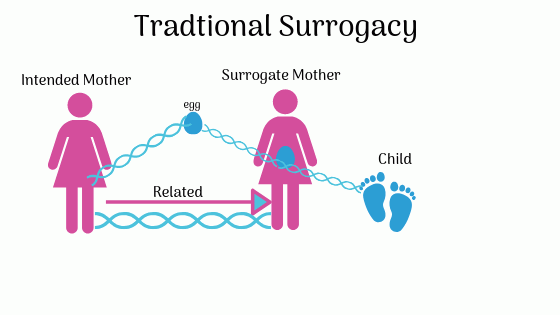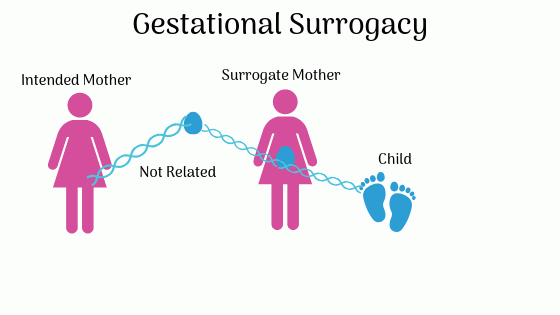Though assisted reproductive technology may seem like a new thing, it’s not new at all. Did you know that surrogacy has been practiced around the world since biblical times? Yet, it remains somewhat controversial until this day. While surrogacy practices have been around for many generations, advancements in reproductive technology have re-defined surrogacy as an alternative method for reproduction, and quite an effective one as well.
If you have thought about becoming a surrogate, or are someone who is searching for a surrogate, then you might want to be aware of the different types of options that are available. In this guide, we will walk you through the different types of surrogacy.
Traditional Surrogacy
Traditional surrogacy has become more unpopular over the years in favor of gestational surrogacy. It’s a method in which the child can have a stronger genetic connection with the intended parents because the surrogate and one of the parents are related.

Traditional surrogacy also is a way for same-sex couples to achieve a genetic link to their child. Though other forms of surrogacy have replaced traditional surrogacy, it still provides a solution to families who are concerned about keeping hereditary traits within the family. The pitfalls for this method, however, are the legal implications that could arise over custody of the child. Determining the “true parent” of the child gets a bit murky when surrogate, intended parent, and child all share the same genetics.
Gestational Surrogacy
Reproductive technology has made it possible for one woman to carry the egg of another woman. Unlike traditional surrogacy, this method clearly defines the child’s biological mother, making legal issues more straight-forward. In gestational surrogacy, the surrogate mother carries the egg of the intended mother who goes through the entire pregnancy cycle and eventually delivers the baby. A gestational carrier doesn’t have a genetic link to the child, though it’s still possible for her to pass on some of her traits. Nevertheless, the child shares the most significant biological qualities with the intended parent.

Egg Donation in Gestational Surrogacy
In-vitro fertilization makes it possible for the intended mother’s egg to be transplanted to the surrogate mother. The egg is retrieved from the intended mother and fertilized in a laboratory with the sperm of the father or a sperm donor. The embryo (fertilized egg) is then transplanted to the surrogate mother who will carry the pregnancy to full term.
Success Rate with Gestational Surrogacy
Many factors depend on the success of a gestational pregnancy. However, the intended mother’s health and age are significant factors that can impact the quality of her eggs. Working with a surrogacy agency, who is knowledgable in reproductive issues, can help an intended parent with implementing healthy habits that could increase the chances of a successful outcome.
Altruistic Surrogacy
Whereas gestational surrogacy is an agreement where the surrogate agrees to carry an embryo for another person in return for compensation, altruistic surrogacy eliminates this arrangement. In short, a surrogate mother does not receive payment. The surrogate may be a friend or a relative of the intended mother. While there is no payment involved, the surrogate mother may still receive reimbursement for medical and pre-natal coasts.
Independent Surrogacy
Independent surrogacy takes agency out of the entire equation. It may fall under traditional surrogacy, but the main point is that all parties in this arrangement work independently. The surrogate may or may not be a relative. Individuals who choose independent surrogacy can open themselves up to an array of legal issues. Compensation, medical reimbursements, and custody of the child have to be addressed by all parties independently and with little to no guidance from outside experts.
In Summary
Surrogacy has transformed over the years, and the earliest records date back to biblical times. Though traditional surrogacy was the only option available at one time, other forms of surrogacy have become available. Gestational surrogacy is the most popular options, and legally, it is also one of the most sound arrangements. Surrogacy is complicated. Many legal implications can arise, especially when a surrogate is related to one of the intended parents.
Working with a surrogacy agency can seem more costly than pursuing alternatives. But when it comes to safeguarding the health of everyone involved, including the health of the baby, and protecting yourself legally, you might want to ask yourself if the risks of going at it alone are worth it. Working with a reputable surrogacy agency who understands the ins and outs of the entire surrogacy process is one of the best ways to protect your legal rights and your health.

